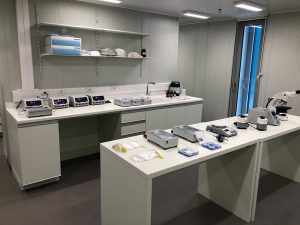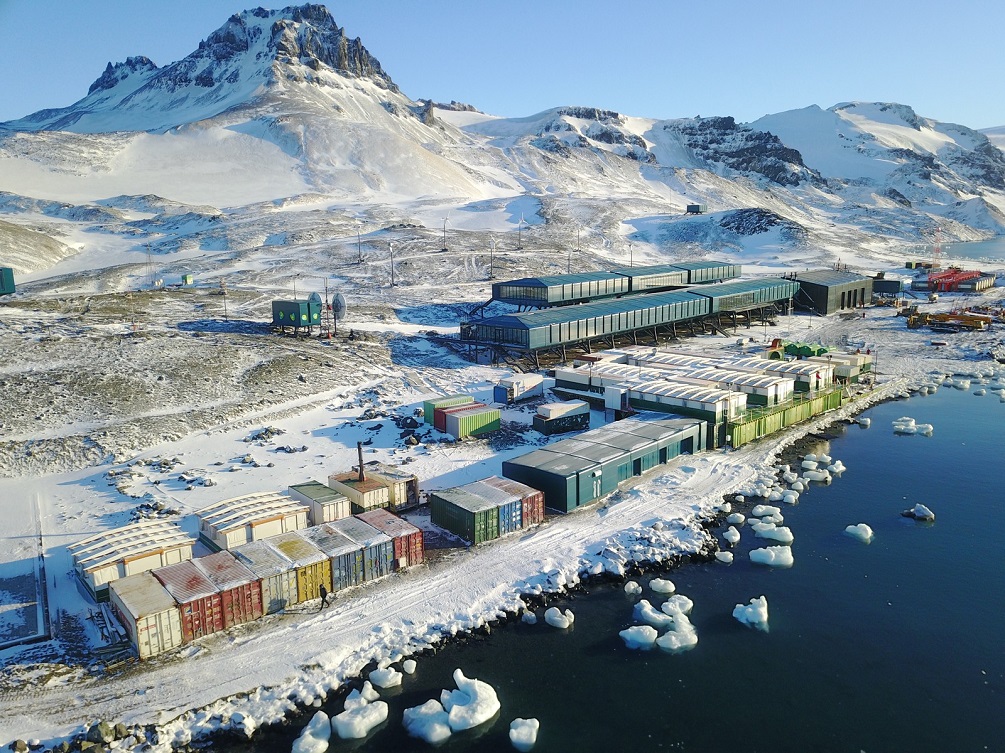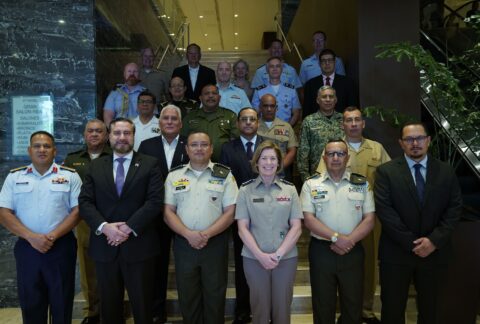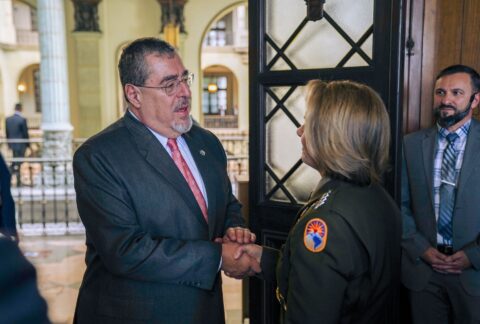On January 15, 2020, the Brazilian Navy (MB, in Portuguese) inaugurated the new Comandante Ferraz Antarctic Station (EACF, in Portuguese). The structure was built on Keller Peninsula, King George Island, on the site of the previous station that operated until 2012, when a fire in one of the generators destroyed 70 percent of the facility.
EACF’s operations and logistics are under MB’s purview, with support from the Brazilian Air Force. The new facilities occupy a roughly 48,440 square-foot area. The architectural project includes 17 labs instead of the four at the previous base, which increases the Brazilian scientific community’s research capabilities.
The project, which took three years to complete, cost $99.6 million. According to information from MB, the extreme weather conditions in the region and logistics challenges contributed to the length of the construction work.

Brazilian Vice President Hamilton Mourão highlighted the advances of EACF in the development of scientific activities related to climate and environmental issues. “Between now and 2022, the Antarctic Science Action Plan for Brazil will benefit from improved conditions to develop scientific programs to increase Brazilian participation in the Antarctic Treaty System,” said Mourão.
“The new facilities represent a continuation of our active and influential presence in Antarctica, in the name of the Brazilian State,” said Admiral Ilques Barbosa Junior, MB commander.
Structure for research
EACF will provide shelter for up to 64 professionals at a time, including 32 researchers and 32 from the Base Group, MB service members stationed on the continent and maintenance personnel.
At the laboratories’ inauguration, Brazilian Minister of Science, Technology, Innovation, and Communications Marcos Pontes pointed out that the research area was projected to meet multiple requirements, reflecting the priority status of the Brazilian Antarctic Program (PROANTAR, in Portuguese). “With the new structure, researchers will have ample resources to develop activities in various scientific fields, as a leading global player,” Pontes said.
Importance for Brazil
In 1975, Brazil joined the Antarctic Treaty and started PROANTAR in 1982, which for the national scientific community meant an opportunity to participate in activities that, in addition to space and seabed research, constitute the last great frontier of international science. Currently, there are 30 countries with consulting member roles in the Antarctic Treaty System (ATS), including Brazil — all have research stations on Antarctica.
“This goes to show the importance of maintaining a permanent research structure on the continent, which enables Brazil to retain the status as a consulting member of the ATS, and the ability to discuss and be present for the decisions involving Antarctica’s future,” MB said.









